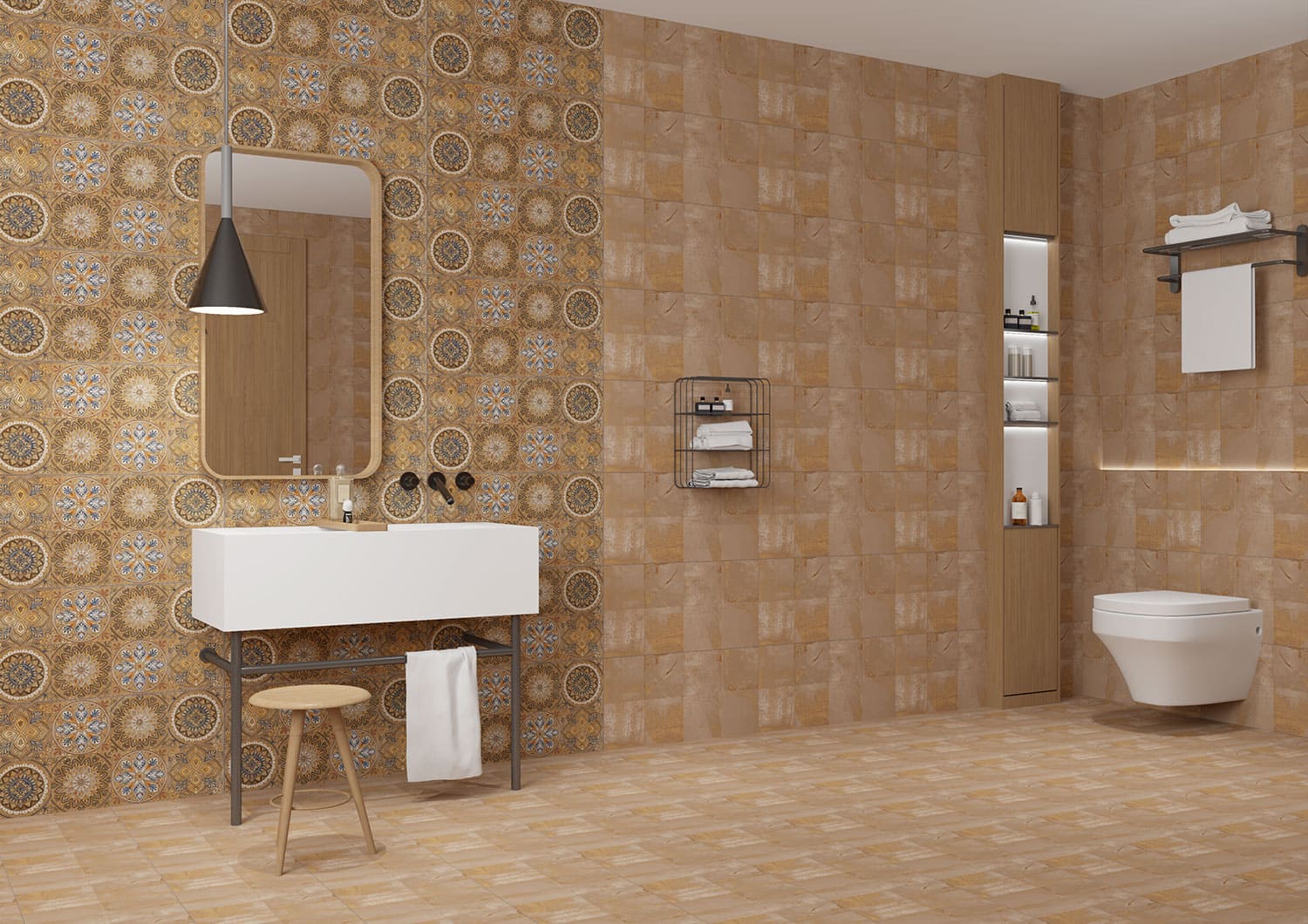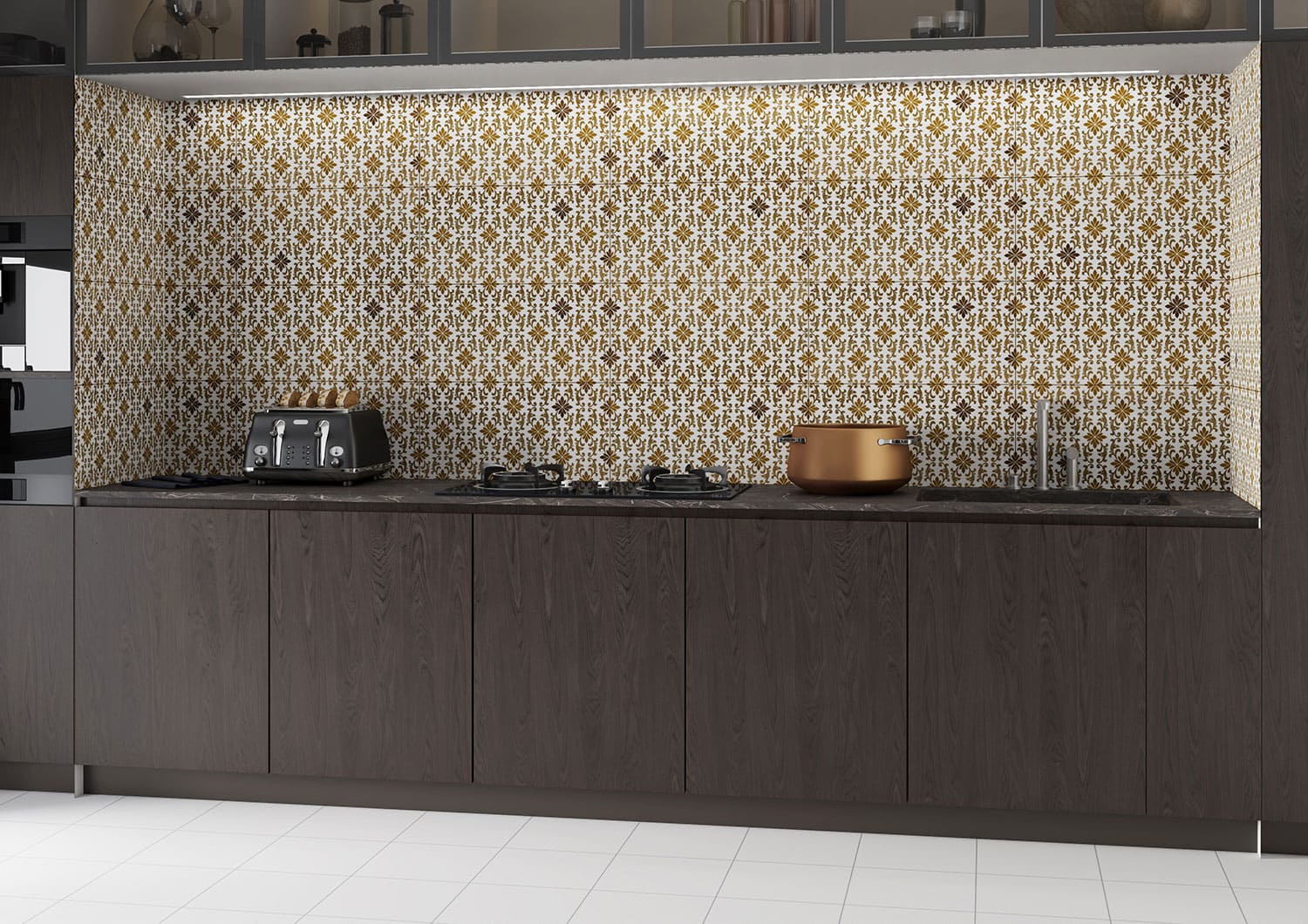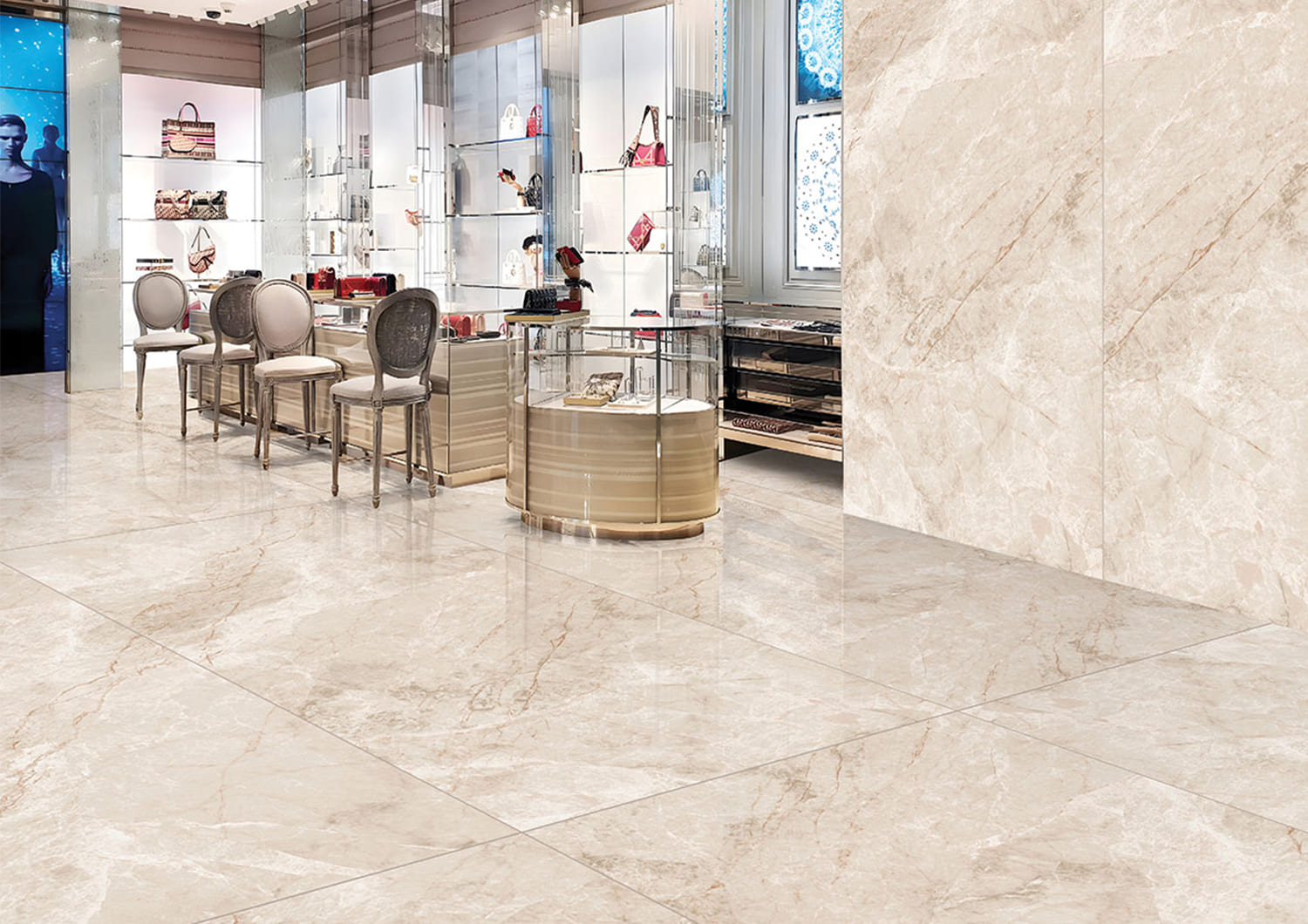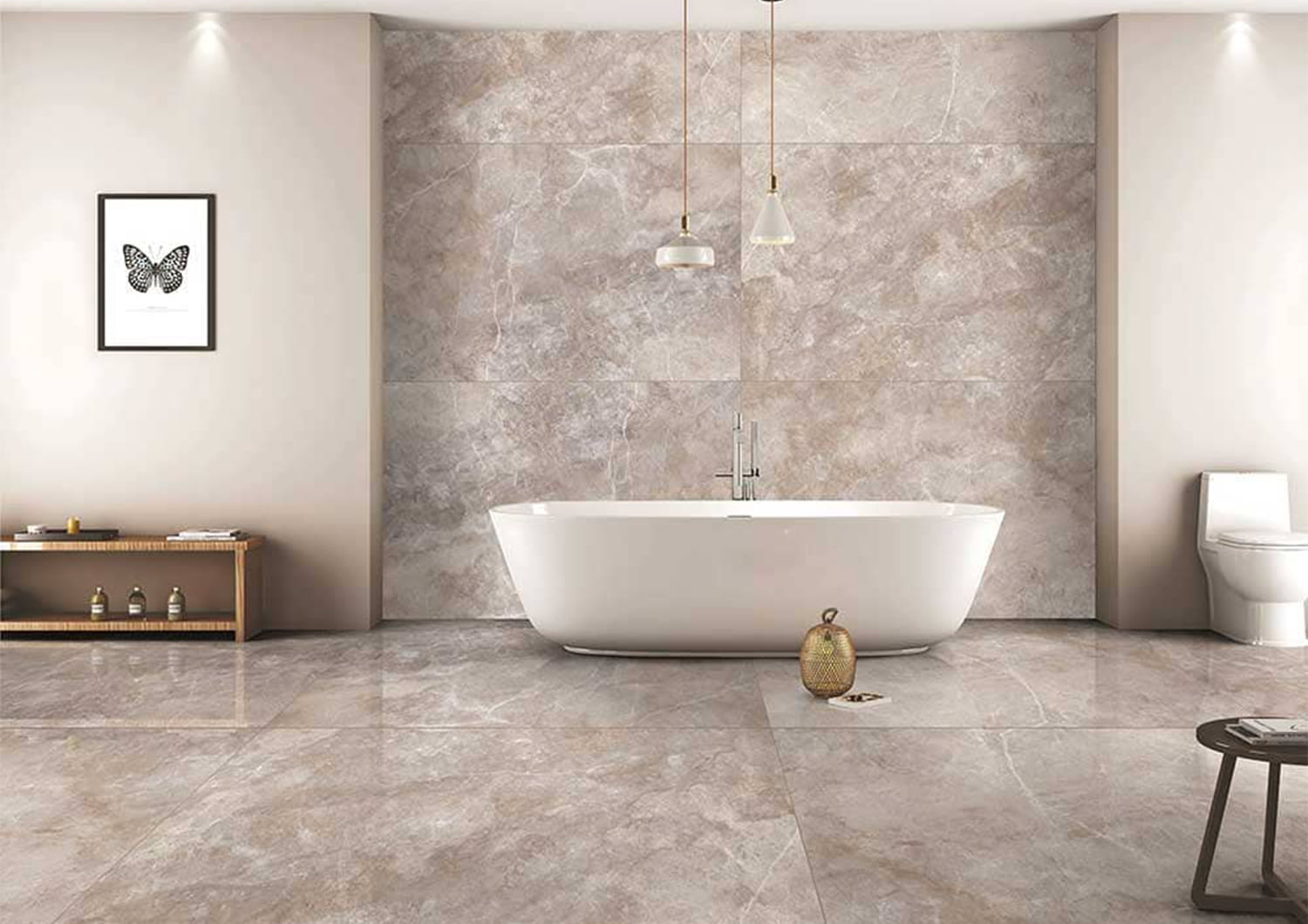
What are Ceramic Tiles?
Ceramic tiles are a popular flooring and wall covering option known for their durability, versatility, and aesthetic appeal. They are created by mixing clay with other materials, shaping them into tiles, and then firing them at high temperatures. This process transforms the clay into a hard, non-porous material that is resistant to moisture, stains, and scratches.
Types of Ceramic Tiles
The world of ceramic tiles offers a vast array of options to suit various styles and needs. Here are some of the most common types:
- Glazed Ceramic Tiles: These tiles are coated with a layer of glaze, which adds color, shine, and enhances their resistance to stains and moisture. They are commonly used for walls and floors in kitchens, bathrooms, and entryways.
- Unglazed Ceramic Tiles: These tiles have a natural, matte finish and are typically more porous than glazed tiles. They are often used for outdoor applications, patios, and driveways.
- Porcelain Tiles: A highly durable type of ceramic tile, known for its strength, low water absorption, and resistance to scratches and stains. Porcelain tiles are available in a wide range of colors, textures, and finishes, making them suitable for both residential and commercial spaces.
- Quarry Tiles: These are thick, unglazed tiles with a rustic and earthy appearance. They are commonly used for flooring in kitchens, mudrooms, and basements.
Benefits of Using Ceramic Tiles
Durability: Ceramic tiles are incredibly strong and resistant to wear and tear, making them a long-lasting investment for any space.
Versatility: Available in a wide variety of colors, patterns, and sizes, ceramic tiles can be used to create a wide range of styles, from classic to contemporary
Easy Maintenance: Ceramic tiles are easy to clean and maintain. Simply wipe them down with a damp cloth and mild detergent to remove dirt and stains
Water Resistance: Ceramic tiles are highly resistant to water, making them an ideal choice for bathrooms, kitchens, and other areas prone to moisture.
Stain Resistance: Most ceramic tiles are resistant to stains, making them easy to keep clean and maintain their appearance.
Cost-Effective: Ceramic tiles are a relatively affordable flooring and wall covering option compared to other materials like natural stone or hardwood.
Where to Use Ceramic Tiles
Kitchens: Ceramic tiles are a popular choice for kitchen backsplashes and floors due to their durability, easy cleaning, and resistance to heat and moisture.
Bathrooms: The water resistance and slip resistance of ceramic tiles make them ideal for bathroom floors and walls.
Entryways: Ceramic tiles can withstand heavy foot traffic and are easy to clean, making them a practical choice for entryways and mudrooms.
Living Rooms: Ceramic tiles can add a touch of elegance and sophistication to living rooms. Consider using them as a focal point on a fireplace surround or as an accent wall.
Outdoors: Certain types of ceramic tiles, such as porcelain and unglazed tiles, are suitable for outdoor applications such as patios, decks, and pool surrounds.
How to Choose the Right Ceramic Tiles
Choosing the right ceramic tiles for your space can seem overwhelming. Here are some factors to consider:
- Style: Determine the overall style of your space and choose tiles that complement your aesthetic.
- Budget: Set a budget for your project and explore options that fit within your price range.
- Traffic: Consider the level of foot traffic in the area where you plan to install the tiles. High-traffic areas may require more durable tile options.
- Maintenance: Think about how much time and effort you are willing to spend on maintaining your tiles.
- Safety: If you are installing tiles in a high-traffic area, such as a bathroom or kitchen, choose slip-resistant options.
Ceramic Tile Maintenance
Proper maintenance will help your ceramic tiles look their best for years to come.
- Regular Cleaning: Sweep or vacuum your tiles regularly to remove dust and debris.
- Mopping: Mop your tiles weekly with a mild detergent solution and warm water.
- Stain Removal: Act quickly to remove spills and stains. Use a gentle cleaner specifically designed for ceramic tiles.
- Grout Cleaning: Clean grout regularly to prevent discoloration and mold growth.
- Sealing: Seal your tiles periodically to protect them from stains and moisture.
Best Ceramic Tiles for Kitchens
Porcelain Tiles: Durable, stain-resistant, and available in a wide range of colors and styles.
Glazed Ceramic Tiles: Easy to clean and maintain, perfect for kitchen backsplashes.
Quarry Tiles: Add a rustic charm to your kitchen and are highly durable.
Ready to transform your space with beautiful and durable ceramic tiles? Contact us today for a free consultation. Our experienced team can help you choose the perfect tiles for your project





